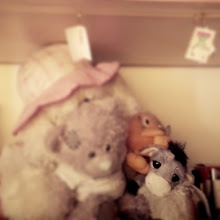Moharam is the first month of Hijri calendar. But unlike other new years, for Sheeiis it is the time of mourning.... Imam Hussein; third religious leader of Sheeii, had been killed in the 10th day of Moharam. So we have some kind of religious ritual during the first 10 days.
The saga of Imam Hussein & the way he & 72 of his loyal devotees had died on the battlefield on Ashoura (10th day of Moharam) is known to every 2 year old Iranian kid. Although it had been exaggerated over past 13 centuries it still holds part of the true story.
During this 10-day event the cities are far too changed from what they usually look like. There are so many places that give away food as vows (which we call Nazri) & some mourning carnivals will be going on.... The ritual had been derived from an ancient ritual of “revenge of Siyavoosh” in old pre-Islamic era.
Siyavoosh had been the handsome son of keykavoos the emperor of Iran. He had been beheaded by Afrasiab the king of Tooran (Rival country of Great Iran) who happened to be his father in law. & his son Keykhosro took his revenge by killing Afrasiab (myth of Siyavoosh; Shahnameh; Ferdowsi). He had been one of the most beloved mythic characters in Persian myths & the ritual of his revenge had been held widely before Islam. Then when Imam Hussein died, according to the fact that he himself as well as his father Imam Ali was widely appreciated, the ritual turned to some means of protest against the Arab Government ruling Iran at the time. (No offence to all those Arabs out there, but that's the truth historically & I personally don't have anything against them.)
In this event there is this play called Ta`zieh which narrate the saga of the battles on Ashoura & Tasoua (day 9th). It originally played by men & even the female role of Zeiynab (Imam Hussein's sister) or other ladies on the battlefield is played by men. But recently there are few plays which are played by women as well as men. Ta`zieh is played on the streets or in the mosques but there is no need to for any stages & sometime a whole street is the stage for the actors. They are not paid for the role they playing & most of the time there is no rehearsal for the play. They just learn the words through each year play. So this acting job is kind of art which must be learned since childhood. One grows from being a soldier to being Imam or Aboulfazl or Shemr.
Shemr is the wicked fighter who'd killed Imam... so playing his role is the most difficult one. I had been studying acting when I was teenager & I dare say this role is too complicated to be played by some newcomers... so the most experienced actor will play shemr. He is wicked, strong, and knowledgeable & at the same time he loves Imam & he knows what he is about to do... he even cries when he kills Imam.... I had seen some powerful overwhelming acts that made me forget all around me & feel that I'm looking really at the scene in Karballa - the battlefield.
The greatest play is the one for Ashoura's noon.... There would be all these tents & horses & it tells the story of Hussein being killed.... You won’t believe the atmosphere in this play. Every audience has his own role in this play. You may never notice but you yourself will be part of the play... you cry, you shout & chant... if you are interested in folklore, Moharam is the time to come over here.
The mourning carnivals would be chanting, singing battle songs, dancing grievous moves & there'd be all these flags & A`lams (the big metal or wooden big tree-shaped thing decorated with metal balls & cloths & feathers &... as means of signs)... it really look like old army troops setting out to fight! And at last at Ashoura sunset there would be the candle light mourning tradition where things are quiet... because the battle is over & the caravan of prisoners consisting of ladies & kids & sick Imam Sajad (the only man still alive though very sick) is moving to Shaam to meet Yazid the ruler.
Unfortunately I'm not a good narrator & if you are not acquainted with the tradition this post will not help you at all! I will try to find some links on this part but for now why don't you take a look at Borrowed Ideas; Persian Roots of Christian Traditions. You may find it amazing....
Monday, February 23, 2004
Moharam:
Display for World to See @ 12:22
Subscribe to:
Post Comments (Atom)



No comments:
Post a Comment